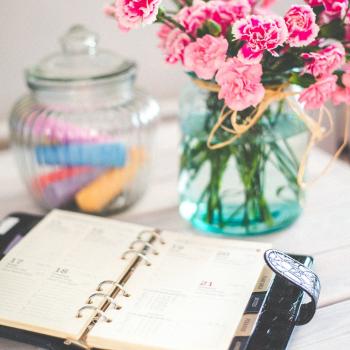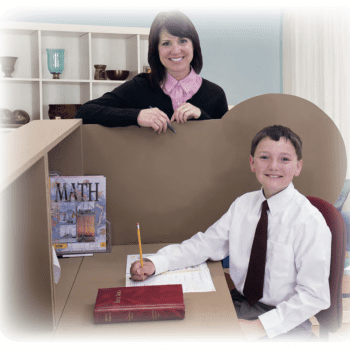I grew up being taught that daycare was the place where selfish moms go to abandon their children. I thought children who were in daycare were miserable, deprived, and stunted. And the same went for preschool as well. I believed that being carefully tended by a state at home mom was the only right option, the only wan to turn out healthy and well-adjusted children, and the only godly option.
And then I reached a point where I had no option but to send my daughter to daycare. I was nervous. I was afraid. I was sure she would hate me for abandoning her, leaving her in the keeping of uncaring strangers. I was afraid that I was somehow ruining her by putting her in daycare. It’s been a couple years since then, and my view of daycare could hardly have changed more completely.
Growing up, when I heard about things like Head Start, which give lower income children a leg up by giving them the chance to attend preschool, they didn’t make sense to me. Being cared for by a stay at home mom, I believed, was always best. How would abandoning a child to the care of strangers for a good part of each day help that child? Of course, I extended these same ideas to school as well, believing that homeschooling was always the best and only right option, and that sending your child away to school was not only second best but also actively harmful.
 And then I put my daughter in daycare. It took her a bit to adjust – she was used to only ever being with me, after all – but adjust she did. And more than that. She loved daycare. She absolutely thrived. She was excited to see her friends and teachers each time I dropped her off. She gained a sense of confidence and independence. She learned to work with other children, and learned that she could trust and learn from other adults.
And then I put my daughter in daycare. It took her a bit to adjust – she was used to only ever being with me, after all – but adjust she did. And more than that. She loved daycare. She absolutely thrived. She was excited to see her friends and teachers each time I dropped her off. She gained a sense of confidence and independence. She learned to work with other children, and learned that she could trust and learn from other adults.
I was completely taken aback. I had not expected this! I had thought that I risked ruining my daughter by putting her in daycare, but what I actually found was that daycare only did her good!
My fears that she would resent me for “abandoning” her were unconfirmed. My fears that she would prefer her teachers to me were unfounded. My fears that her teachers were just there to make a paycheck and wouldn’t really care about my child were misguided.
It took me a long time to stop feeling guilty about having my daughter in daycare, and as I’ve written, I sometimes do still feel that guilt. But I’ve gotten to the point where I can go to work and not worry constantly about my daughter, not constantly feel the fact that she’s not by my side, and not feel guilty that I’m not with her. And you know what? Dads don’t generally constantly feel guilty for leaving their children when they go to work. So, why should moms?
One thing I’ve learned since growing up is that our current stay-at-home mom setup is actually in many ways an innovation of the last few hundred years. In Europe five hundred years ago, families often contained additional relatives, like grandparents and aunts or uncles, and children were often widely spread apart, sometimes with large gaps in age (the result of child mortality). Sometimes there were stepparents (not uncommon given the life expectancy), and there were often servants or apprentices or other labors as well. Mothers were highly integrated into what was then generally a household economy, a family farm or a shop for instance. Children fit into everyday life in an organic way, watched by older siblings, other relatives, and servants in addition to their mothers. Our current system with nuclear families and isolated suburban houses and only a few children closely spaced together? That’s new. That doesn’t mean the stay-at-home mom some how illegitimate; rather, it simply means that we shouldn’t assume that it’s some sort of long-term universal when it quite simply isn’t. The idea that small children are supposed to be watched exclusively by their mothers or else end up maladjusted is new.
The way I see it, what’s important is that the child is getting good quality care, wherever that might be – and what works best will vary by family even as families’ needs vary. For some families it may mean a stay-at-home parent, for others it may mean the children stay with a grandmother or other relative, and for others it may mean daycare.
And of course, not every daycare is identical or offers the same quality. Choosing a daycare is a task to be undertaken with care – and that is just what I did when I first started shopping for daycares for my daughter. What I love about the daycare we chose is that I truly feel like it’s a sort of second home. I trust the men and women who work there, and I feel totally comfortable around them – and so does my daughter. The daycare shares my child-rearing style and my views on children in general. The teachers don’t just play referee, they also engage the children in learning and sensory activities. And my daughter always seems to come home covered in paint.
I think my own particular fears of daycare were based in part on the ideology taught by the homeschooling circles in which I was raised. For example, I was afraid of having my daughter learn from other adults. I only wanted her to learn from me, and from my husband. The idea of her coming home having learned the days of the week from daycare, for instance, scared me. I wanted to teacher all those things, and only me. I realized over time that this fear – and this desire – are irrational. I now see it as a good thing for my daughter to have a variety of teachers and a variety of role models, and to have a social circle that is not wholly circumscribed by her family.
Regardless, becoming comfortable having my daughter in daycare, after being taught that daycare meant her ruin, has helped to acclimate me to the idea of putting her in school when the time comes. After all, I’m now okay with her having other teachers and okay with her having friends who aren’t simply the children of my friends – and I’ve seen that my daughter grow in confidence and independence and continue to thrive even without me constantly at her side. And you know what? She still throws her arms around my neck and says “I love you mommy.”














